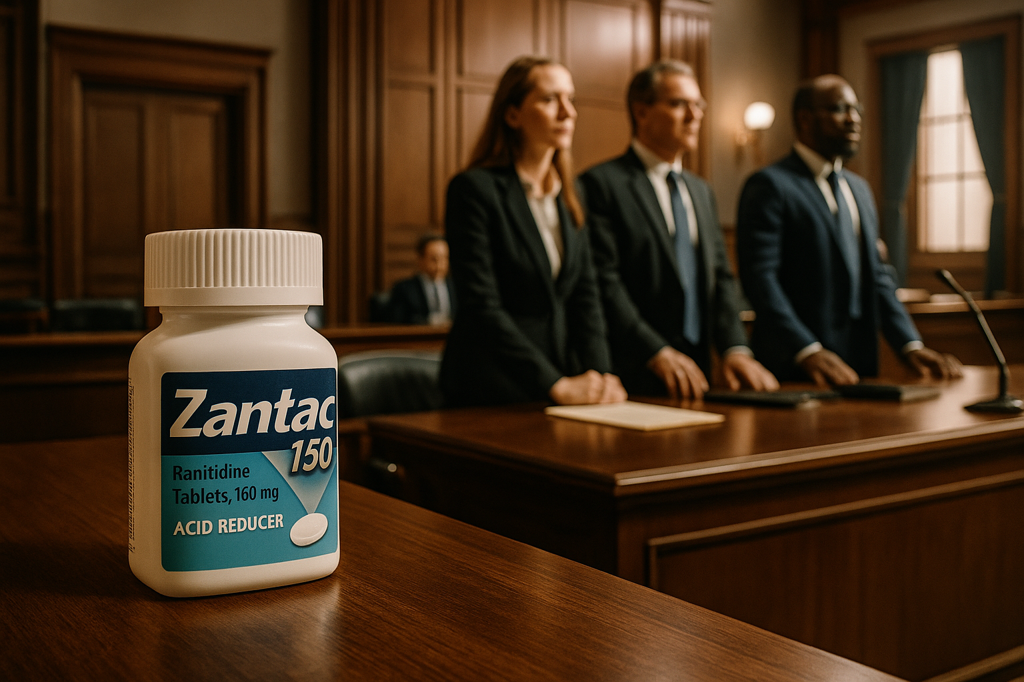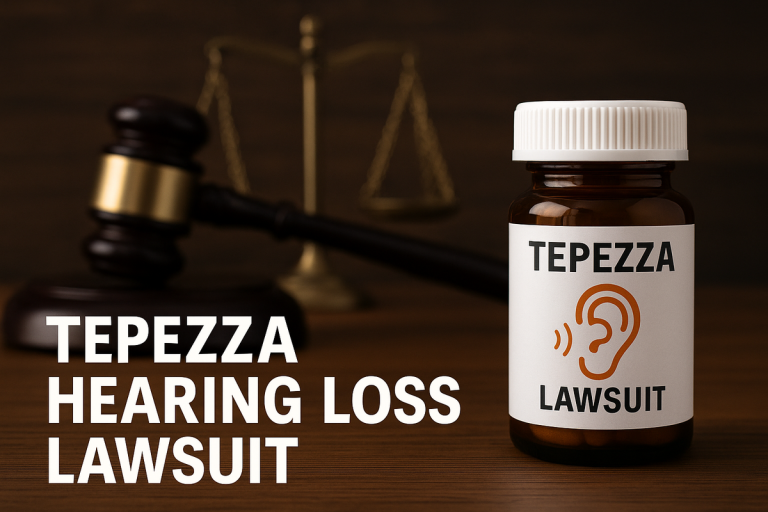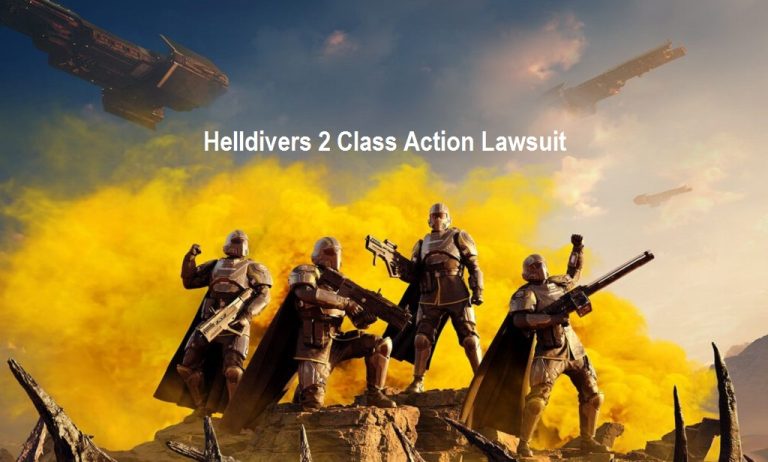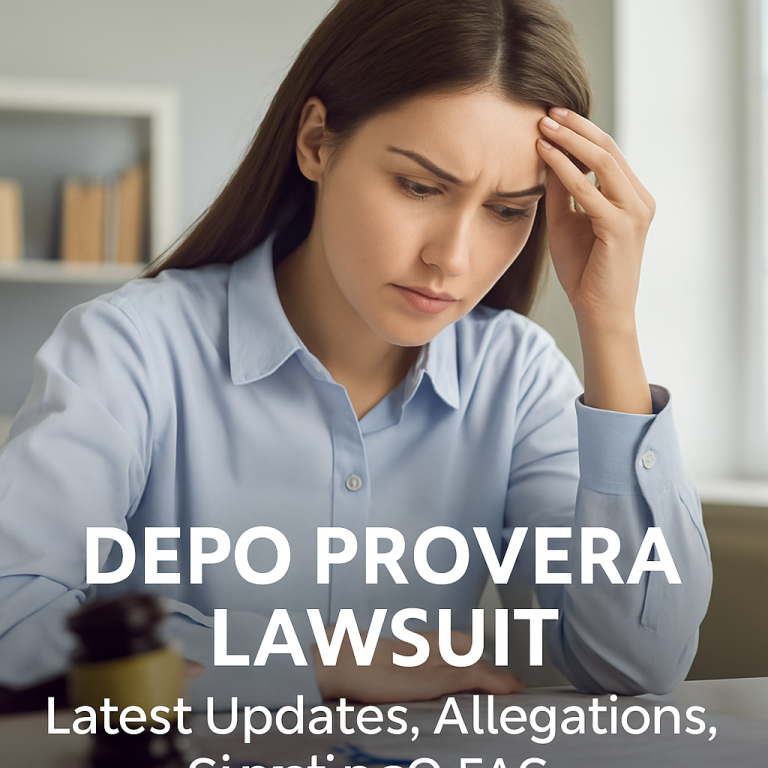The Zantac lawsuit update is one of the most closely watched legal developments of 2025. Thousands of patients have filed lawsuits claiming that Zantac, a once-trusted heartburn medication, caused them to develop cancer. After years of legal battles, the federal courts dismissed mass claims in 2022. However, that decision didn’t end the fight—it shifted it. Today, state courts across the country are picking up the pace. New trials are scheduled. Confidential settlements are happening quietly. And the scientific debate over Zantac’s cancer risk continues to shape the future of the case.
If you or someone close to you took Zantac regularly and later received a cancer diagnosis, this update is for you. This article breaks down the latest court rulings, active lawsuits, key medical findings, and upcoming verdicts. You’ll also learn if you qualify to file your case. Everything here is written clearly, with real facts and no legal jargon—just what you need right now.
What Caused the Zantac Recall?
Zantac was once a trusted drug. Millions used it for heartburn. But it had a hidden danger.
NDMA: A Dangerous Chemical Found in Zantac
NDMA is not an ingredient you want in your body. It’s a probable cancer-causing chemical. Zantac forms NDMA after exposure to heat. Studies show it breaks down during storage or digestion. The longer it sits, the more dangerous it becomes.
You might think that’s just a theory. It’s not. The FDA found real NDMA in samples pulled from shelves. It warned that Zantac may create unacceptable NDMA levels under normal conditions. This isn’t speculation. It’s documented.
Why the FDA Banned Zantac in 2020
In April 2020, the FDA pulled all ranitidine drugs, including Zantac, from the U.S. market. It didn’t wait for more testing. The risk was too high. Zantac’s chemical structure made it unstable. When exposed to heat—even room temperature—it started breaking down. The FDA acted fast to protect public health. The recall shocked patients and doctors. A drug that was trusted for decades was now considered unsafe. That moment triggered everything that followed, including the lawsuits.
What Happened to the Federal Zantac Cases?
Federal lawsuits started strong. But they ended in disappointment for many victims.
How the MDL Got Started
A multidistrict litigation (MDL) was created in Florida. It grouped over 50,000 Zantac lawsuits. This helped judges handle shared questions about the drug. Victims hoped to prove a link between Zantac and cancer. Attorneys brought in expert witnesses. They submitted lab results and toxicology reports. They showed NDMA could cause harm. The courtroom was filled with technical evidence.
Why the Judge Threw It All Out
In December 2022, Judge Robin Rosenberg dismissed all federal Zantac lawsuits. She said the expert evidence didn’t meet the Daubert standard. That means it wasn’t strong enough under federal rules. She didn’t say Zantac was safe. She said the plaintiffs hadn’t proven their case well enough in her court. The MDL collapsed. Thousands of cases vanished overnight. But hope didn’t.
Which States Still Allow Zantac Cancer Lawsuits?
Don’t let the federal ruling fool you. State courts are moving forward. That decision does not bind them.
California Leads the Legal Battle
California is now the core of the Zantac lawsuit update. It created JCCP 5150, a consolidated case for thousands of victims. Judges there said the evidence was enough to proceed. This court is expected to host the first jury trials soon. California laws permit greater flexibility in expert testimony. This gives plaintiffs another shot at justice. If the first few trials succeed, others may quickly follow.
Delaware and Illinois Also Clear the Way
Delaware’s Superior Court has cleared expert witnesses. It ruled that juries should hear the evidence. Illinois is also preparing bellwether trials. Judges are pushing these cases forward. No one’s backing down now. These courts understand the urgency. Cancer patients can’t wait years. Many want closure. They want companies to take responsibility. State courts are their best path forward.
Why State Laws Work Differently
Federal and state courts follow different rules. Many states use the Frye standard instead of the Daubert standard. Frye is more lenient. It asks whether experts use methods accepted in their field. This helps plaintiffs bring their cases to trial. In state courts, juries—not judges—decide if the science is strong enough. That’s a big difference. And it’s why Zantac lawsuits aren’t dead yet.
Have There Been Any Zantac Lawsuit Settlements?
You’re probably wondering if anyone has won money yet. The answer is yes, but it’s just the beginning.
GSK Settled Quietly Before Trial
In early 2024, GlaxoSmithKline (GSK) settled a Zantac lawsuit in California. The details were private. But experts say it was a large amount. The company didn’t want a trial. It chose to settle instead. This revealed that big pharma might be willing to pay to avoid public scrutiny. One settlement can lead to more. It sets a precedent, even if it’s not public.
Are Other Companies Settling?
Pfizer, Sanofi, and Boehringer Ingelheim haven’t made public settlements. However, attorneys believe that private deals are taking place. These cases settle behind closed doors. They don’t make headlines—but they matter. Drugmakers are watching every trial. If juries side with victims, companies could face massive payouts. They may settle to reduce risk.
Will We See More Settlements in 2025?
Yes, especially if the first trials go badly for defendants. That’s how mass torts work. A few big losses trigger waves of settlements. That’s why 2025 matters so much in the Zantac lawsuit update.
What Cancers Are Tied to Zantac Use?
Many people still ask, “What cancers are linked to Zantac?” Here’s what the lawsuits claim.
Most Commonly Reported Cancers
| Cancer Type | Estimated Share of Lawsuits |
|---|---|
| Stomach Cancer | 25% |
| Bladder Cancer | 22% |
| Pancreatic Cancer | 18% |
| Esophageal Cancer | 14% |
| Liver Cancer | 12% |
| Colorectal Cancer | 9% |
These numbers come from active cases. They don’t prove guilt. But they show where patients are most concerned.
Is the Science Behind These Claims Strong?
It’s mixed. Lab tests show Zantac creates NDMA. NDMA is linked to these cancers in animal studies. But human studies are harder. Everyone’s exposure is different. That makes proof difficult. Still, courts are letting juries hear the evidence. That’s all plaintiffs need. They don’t have to prove guilt beyond all doubt. They need to show it’s more likely than not.
Who Is Legally Responsible for Zantac?
Not every company can be sued. Only brand-name makers face these lawsuits.
These Drugmakers Are on Trial
- GlaxoSmithKline
- Sanofi
- Pfizer
- Boehringer Ingelheim
They sold Zantac under various labels. They controlled the warnings. Plaintiffs say they knew the risks. And they failed to act.
Generic Makers Are Protected—for Now
You can’t sue a generic drugmaker under current law. The Supreme Court says they must copy the brand label. That’s it. This rule shields them from lawsuits, even if the drug is unsafe.
Can You Still File a Zantac Cancer Lawsuit?
Yes—but only if you act fast.
Time Limits Vary by State
Each state has a statute of limitations. It’s usually two to three years from diagnosis. Some states allow more time if you only recently learned the cause. The clock is ticking. If you wait too long, you lose your chance. Don’t assume you’re too late. Ask a lawyer now.
You’ll Need These Records
Gather your:
- Cancer diagnosis reports
- Proof you took Zantac
- Timeline of your symptoms
Lawyers use this information to prove their case. They link your exposure to your illness. The more you provide, the stronger your claim becomes.
What’s Next in the Zantac Lawsuit Update?
The next six months may define the future of this case.
Trials Start in California and Delaware
California’s JCCP is first. Jury selection could begin by late 2025. Delaware is close behind. These trials test the strength of the science. They also test the courage of the defendants. If juries believe the victims, settlements may flood in. If not, plaintiffs may face new hurdles. Either way, the trials matter. Watch them closely.
New Studies May Boost Plaintiffs
Researchers are still testing ranitidine. More data could help victims. Better science means better courtroom arguments. It also means stronger public pressure on drugmakers.
You Still Have a Say
Your voice still matters. Your case could shape future decisions. If you were harmed, don’t stay silent. Join the fight. Protect your rights.
Zantac Lawsuit Update: Final Thoughts
The Zantac lawsuit update shows how a single drug can spark a nationwide legal reckoning. Zantac was marketed for decades. It was sold in pharmacies everywhere. Yet evidence now suggests it may have exposed millions to NDMA, a probable cancer-causing compound. While federal courts dismissed the main batch of lawsuits, state courts continue to move forward. Some are preparing for trials. Others are seeing confidential settlements behind closed doors.
If you believe Zantac played a role in your cancer, you still have options. But time matters. Lawsuits have strict deadlines. Missing them could mean losing your right to file forever. Now is the time to ask questions, gather evidence, and speak to a legal expert. You deserve answers. You deserve justice. And you’re not alone. This case is still unfolding, and your voice could shape what happens next. Don’t wait for another update—become part of the story now.
FAQs: Your Questions Answered
Is it too late to file a Zantac lawsuit?
Not always. Deadlines vary by state. You may still qualify.
What cancers are linked to Zantac?
Stomach, bladder, liver, pancreatic, colorectal, and esophageal cancers are most cited.
Have any jury trials started yet?
No. But California and Delaware may begin trials later this year.
Can I sue if I took a generic version of Zantac?
No. Supreme Court rules protect generic drugmakers from these lawsuits.
Will there be more settlements soon?
Yes, especially if juries side with plaintiffs in upcoming trials.




